Herb Companion Planting Chart
Want to grow the best herb garden this year? Then this article on the Herb Companion Planting Chart is exactly what you need. Partnering up plants can really boost your garden, and that is what we will focus on.
Learn the best practices for planting herbs to grow healthy plants this year. Gardening 101 tips that you can use in your own setup this growing season.
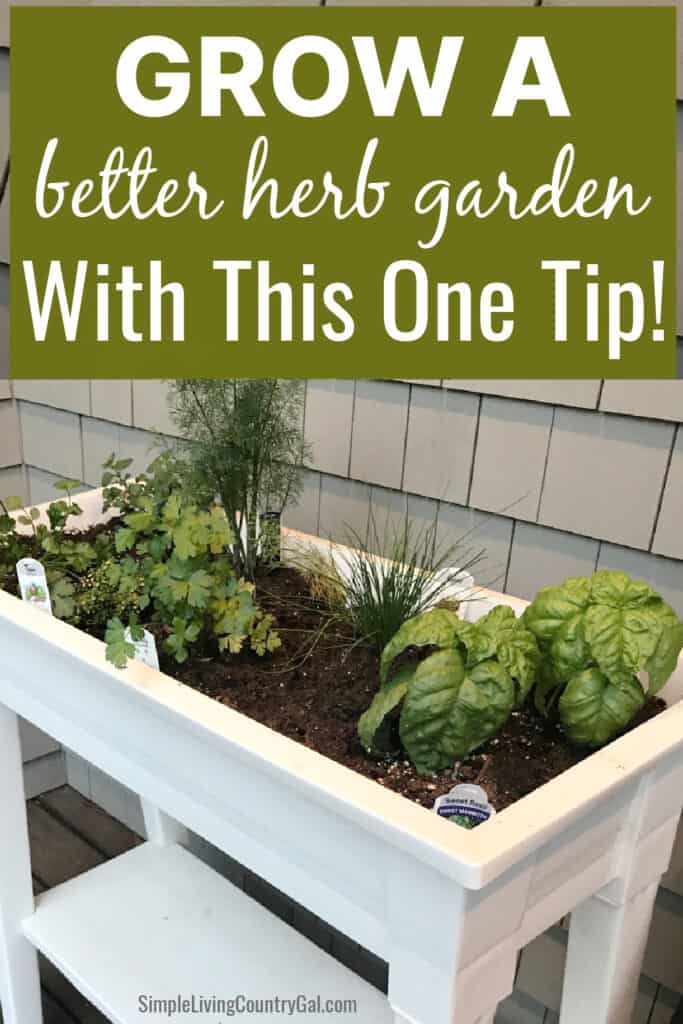
When planting an herb garden, knowing which herbs benefit each other can help all of your plants thrive. Also, knowing what to avoid planting near each other is important as well because some plants can be detrimental to each other. This is where companion planting comes in.
Be sure to grab your FREE herb companion planting chart at the end of this article!
READ: Companion Vegetable Garden Guide
Like the rest of your garden, herbs have different life cycles and will eventually die off. Planting herbs that compliment each other can also create an “herb season” for your garden, where they all grow and thrive together and all die off around the same time.
Companion planting with herbs can also be beneficial to various crops in your garden. They can help repel harmful pests with their scents allowing other plants to thrive.
Some of the benefits of herb companion planting include:
· Attracting beneficial insects to your garden like butterflies and bees.
· Enhancing the flavors and scents of other herbs and vegetables.
· Keeping harmful pests away with their fragrant scents.
· Enriching the soil to the benefit of your entire garden.
· Keeping weeds to a minimum.
· Protecting smaller herbs and/or vegetables that prefer shade.
When deciding what to plant together, consider their environment. Plants with similar sun, soil, and water requirements will usually work well together and be easy to maintain. Also, herbs of the same family will usually work well together.
Good Companion Herbs
Some plants work well together and also benefit the rest of your garden. Let’s talk about a few of the most popular.
Mints
Mint attracts an insect called Nesidiocoris tenuis. It feeds on other garden pests such as mites, thrips, and aphids. Mint grows best in moist soil with good drainage and it doesn’t need a lot of sunlight. Planting two types of mint together may cause them to cross pollinate resulting in a new kind of mint.
Mediterranean Herbs
There are several herbs that fall under this category and they all need plenty of sunlight and well-draining, mostly dry soil. A few herbs to consider are:
- Rosemary
- Sage
- Tarragon
- Marjoram
- Oregano
- Lavender
Basil
Basil loves an environment with plenty of moisture and light. It also provides pest control, repelling aphids, mosquitos, hornworms, and whiteflies. In addition to growing well with parsley and chamomile, it also loves to be planted near vegetables such as tomatoes, potatoes, cabbages, and eggplants.
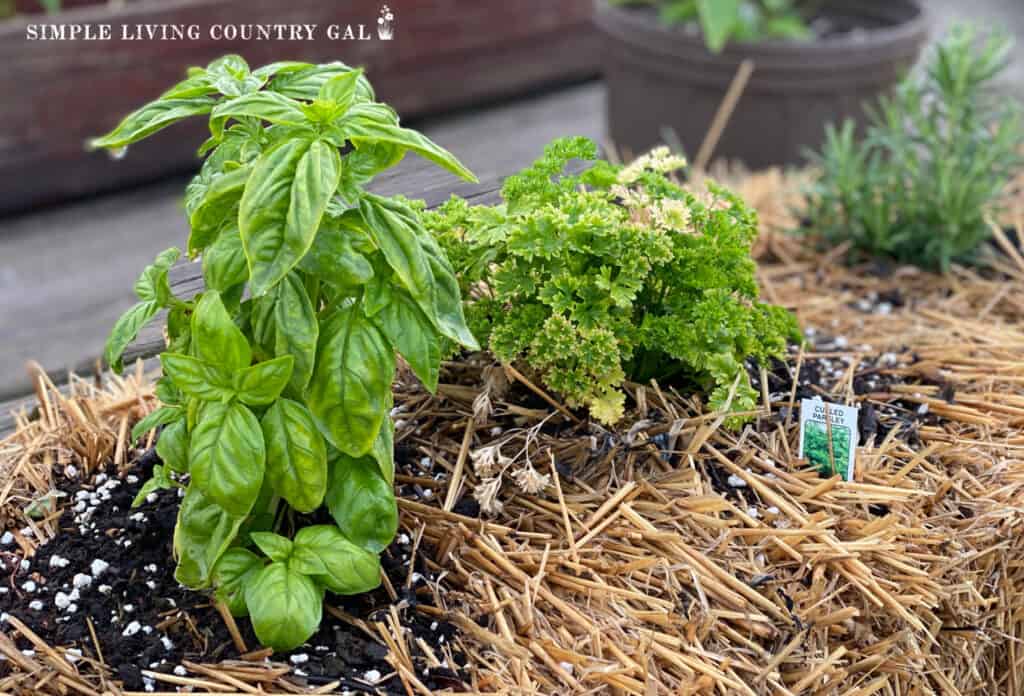
Tarragon
Tarragon is a great companion herb for your entire herb garden due to its nursing powers. It boosts the growth of any neighboring herbs and gives them a more robust flavor. Tarragon is a perennial so it can be beneficial to plant with other perennials, but if that’s not possible it will still benefit whatever it’s planted near.
Dill
Dill is very attractive to insects that benefit your garden like butterflies, honey bees, ladybugs, wasps, and praying mantises. It’s also a deterrent for insects you don’t want like aphids, cabbage loopers, and spider mites. Dill grows well with a variety of other herbs and vegetables but does especially well with chives, parsley, tarragon, basil, and cilantro.
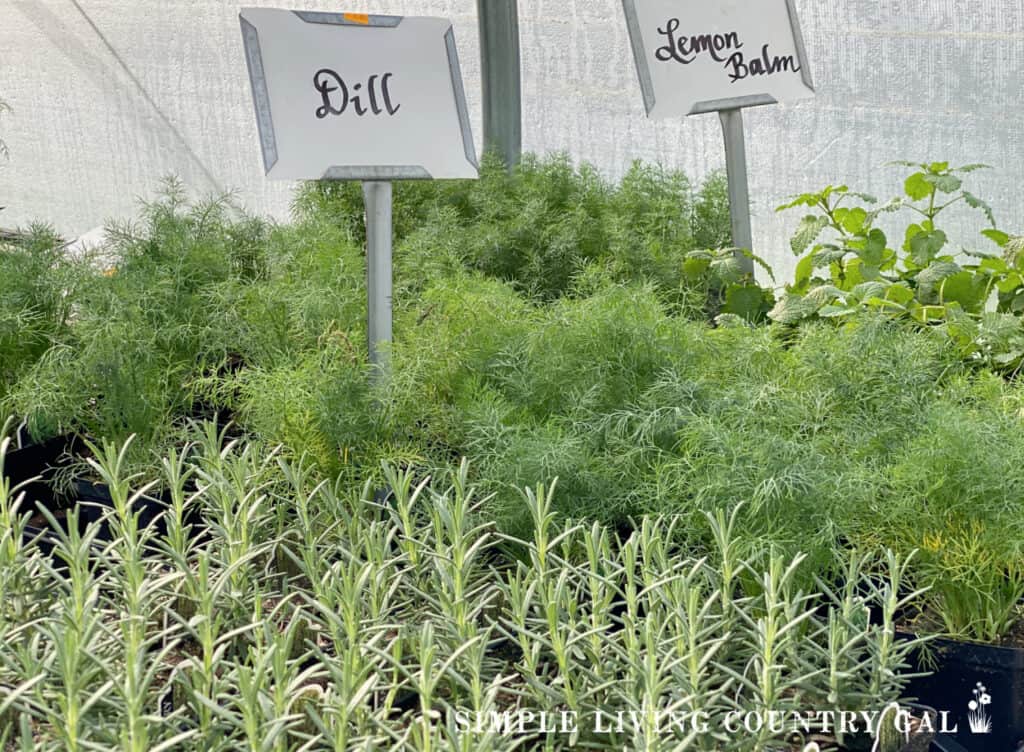
Chives
Chives are a great repellent for aphids and other insects and grow well with tomatoes, carrots, and mustard greens. When planted nearby, they’ll help repel unwanted pests from your vegetables. They are great companion plants for dill, marjoram, tarragon, and parsley.
You might be seeing a connection between these herbs; they all grow well together, most attract pollinators, and most keep away insects you don’t want. Planting an herb garden near your vegetables will benefit your vegetables and provide you with tasty and fragrant herbs to use in your kitchen.
Herbs can be used fresh or dried so if your herb garden is more abundant than you can use, you can preserve the herbs for a later time when your garden is dormant.
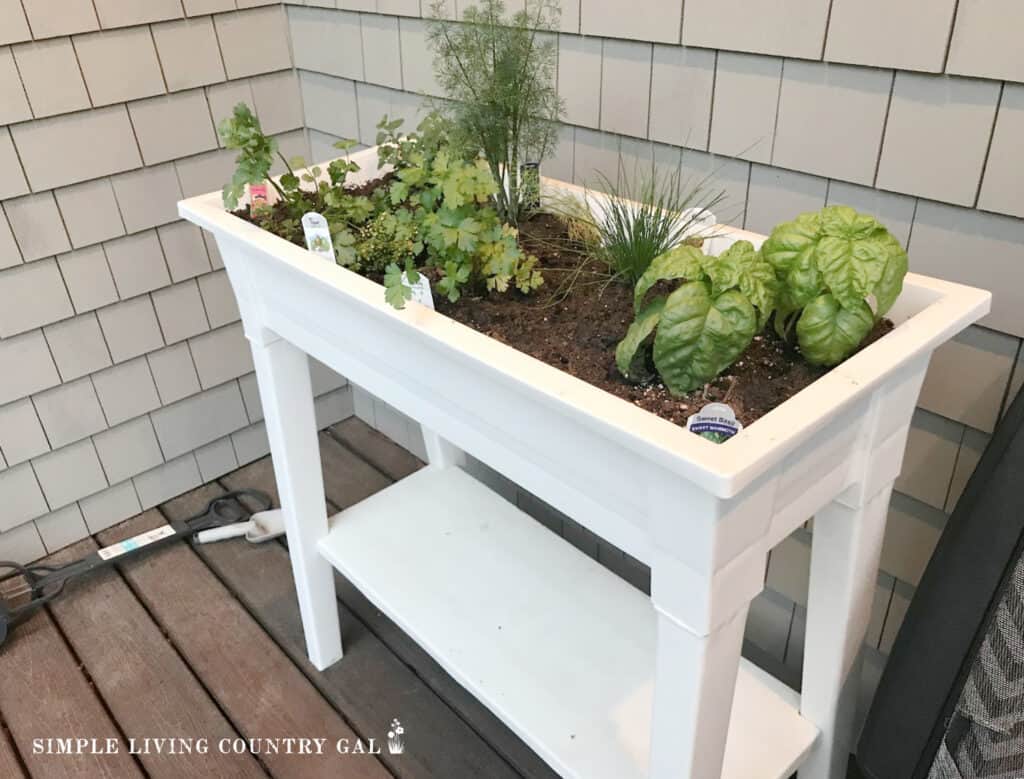
A few other companion herbs that will benefit your garden include:
Marjoram – it will enhance the flavor of anything grown nearby and it’s a good companion plant for all herbs and vegetables.
Thyme – it will repel pests like tomato hornworms, cabbage worms, and corn earworms.
Caraway – it’s long roots will help break up heavy soil and it will attract pollinators to your garden like wasps.
Bee Balm – not only will it attract pollinators like butterflies and bees, it will also enhance the flavor or most herbs and vegetables.
Comfrey – the leaves are full of potassium and nitrogen which will benefit the plants around it as well as helping to create nutrient rich soil for other plants.
Nasturtium – it repels pests like whiteflies, aphids, and squash bugs.
Borage – it attracts pollinators like bees and repels pests like tomato hornworms. It’s beneficial for tomatoes, squash, and strawberries.
Herbs to Avoid Planting Together
While many herbs work well together, some combinations that should be avoided. These herbs should not be planted with other herbs:
Mint – all varieties of mint can be grown together but should not be planted with anything else. Mint requires a different growing environment than most herbs and it can become an invasive plant, expanding quickly and choking out other herbs.
Rosemary – this is an exception to the Mediterranean Herb varieties. It doesn’t thrive in the company of other herbs but instead does well with vegetables. If you’re going to plant it, do so in your vegetable garden.
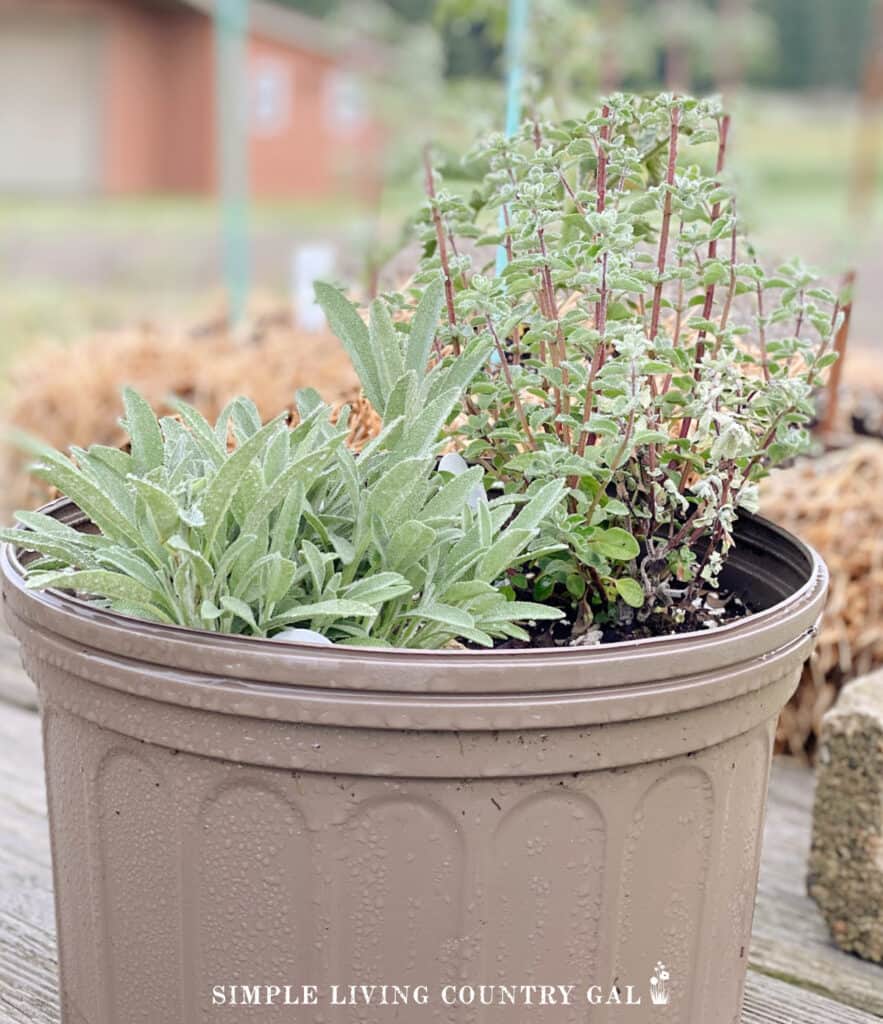
Basil – this also grows well with a variety of vegetables but doesn’t do well with other herbs.
Fennel – it can change the flavor of most herbs, making them foul-tasting. If you’re going to plant it, it’s best to plant it in a pot away from the rest of your garden.
Planting an herb companion garden is a great way to grow tasty herbs that will support each other and support the rest of your garden. It will attract the pests you want and keep away the ones you don’t and it will enrich your garden soil.
Herbs can be dried to use in your kitchen at a later time or composted to benefit the soil at planting time. With so many benefits to offer, it might be time to plant herbs in your garden.
